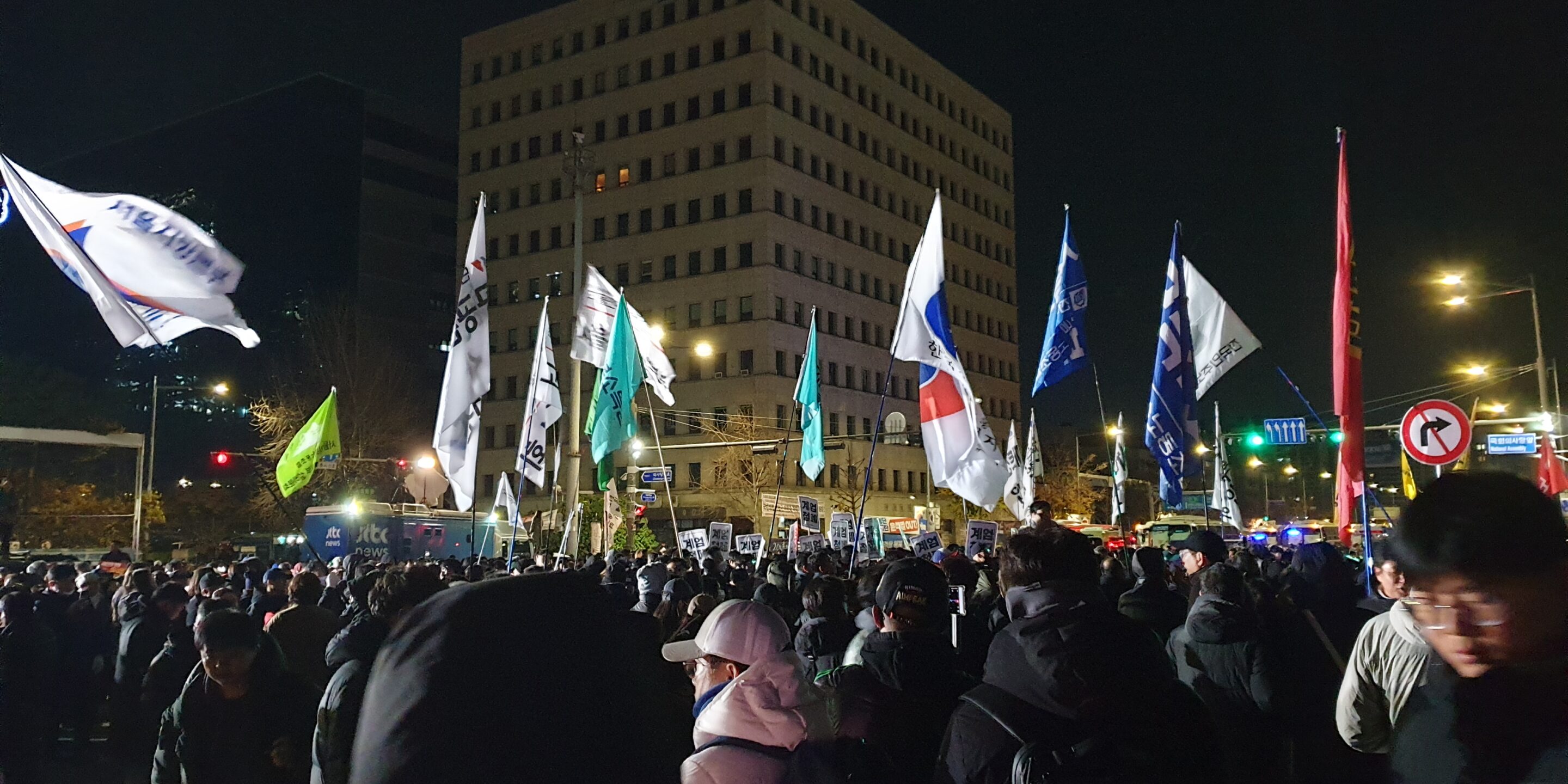
Yoon Suk Yeol, a former top prosecutor and political novice who won the closest South Korean presidential election in the country’s history, was never a particularly popular man. His political opponents viewed him as grating, uncooperative, and at times dogmatic. The South Korean population wasn’t especially pleased with his performance; last week, a Gallup poll put Yoon’s approval rating at a dismal 19 percent. The 2024 legislative elections notched another embarrassment on his belt, with his ruling party losing six seats and the main opposition taking 19. With control of the legislature out of his hands, Yoon was turned into a lame-duck president.
Yoon was clearly miserable at his predicament, but nobody could have imagined the lengths he would go to fix it. For a few hours on December 3, a man President Joe Biden regards as a key ally in the fight against authoritarianism effectively turned into an autocrat. Addressing the nation deep into the night, Yoon emphasized that the machinery of government was simply not working as it should and that extraordinary measures needed to take place to unclog the system and save liberal democracy. He blasted the opposition-run National Assembly as ”a den of criminals…attempting to paralyze the nation’s judicial administration system through legislative dictatorship and overthrow the liberal democracy system.” Yoon’s solution: martial law, the first time such a scheme was invoked since 1980.
If shutting down the country’s political process was meant to usher in a new era more to Yoon’s liking, it backfired in spectacular fashion. The entire affair smelled like a quasi-constitutional coup attempt authored by a desperate head of state whose intensive bickering with the National Assembly over everything from budgets to investigations had induced a nervous breakdown.
It didn’t take long for Yoon’s shocking announcement to be denounced in full force. As South Korean troops were surrounding the National Assembly, lawmakers inside the building were quickly organizing a vote to nullify the martial law declaration. Thousands of ordinary South Koreans, many of whom have vivid memories of the country’s previous bouts of martial law in the Cold War era, came out to protest. The South Korean press, which is supposed to be heavily curtailed during martial law, was broadcasting the events as if it were just an ordinary day.
Author

Daniel
DePetris
Fellow
More on Asia

By Peter Harris
January 22, 2025

Featuring Lyle Goldstein
January 12, 2025

Featuring Dan Caldwell
January 12, 2025





